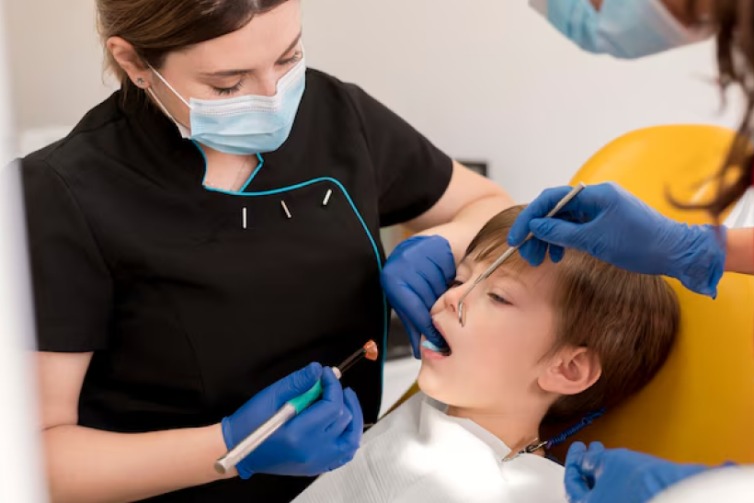Root Canal Treatment for Deciduous Teeth

Why does my child's deciduous tooth need root canal treatment?
Deciduous teeth, or baby teeth, serve as placeholders for permanent teeth. When decay or infection reaches the nerve (pulp) of a baby tooth, it can lead to pain, abscesses, or premature loss. Root canal treatment (RCT) removes the infected pulp, preserves the tooth, and prevents complications that could affect the growth and alignment of adult teeth.
Is it okay to just let the baby tooth fall out naturally?
Leaving an infected baby tooth untreated is not advisable. It can cause pain, spread infection to other teeth, and harm the development of permanent teeth below. RCT ensures the tooth remains functional until it falls out naturally, aiding in chewing, speech development, and proper alignment of adult teeth.
Will my child need additional treatments after root canal therapy?
In many cases, a crown may be required after RCT to protect the treated tooth, especially if a significant portion of the tooth structure has been compromised. Your dentist will recommend additional treatments based on the condition of the tooth.
How long will a root canal-treated deciduous tooth last?
With proper care, a baby tooth that has undergone RCT can remain functional until it naturally falls out. This is essential for maintaining proper oral function and preserving space for the eruption of permanent teeth.
Does root canal treatment in deciduous teeth harm permanent teeth?
No, RCT in baby teeth does not harm permanent teeth. On the contrary, it helps preserve the space and alignment needed for permanent teeth to erupt properly. It also prevents the spread of infection, protecting the developing adult teeth underneath. Pediatric dentists perform RCT with great care to support the healthy growth of your child’s permanent teeth while ensuring minimal impact on the surrounding oral structures.
